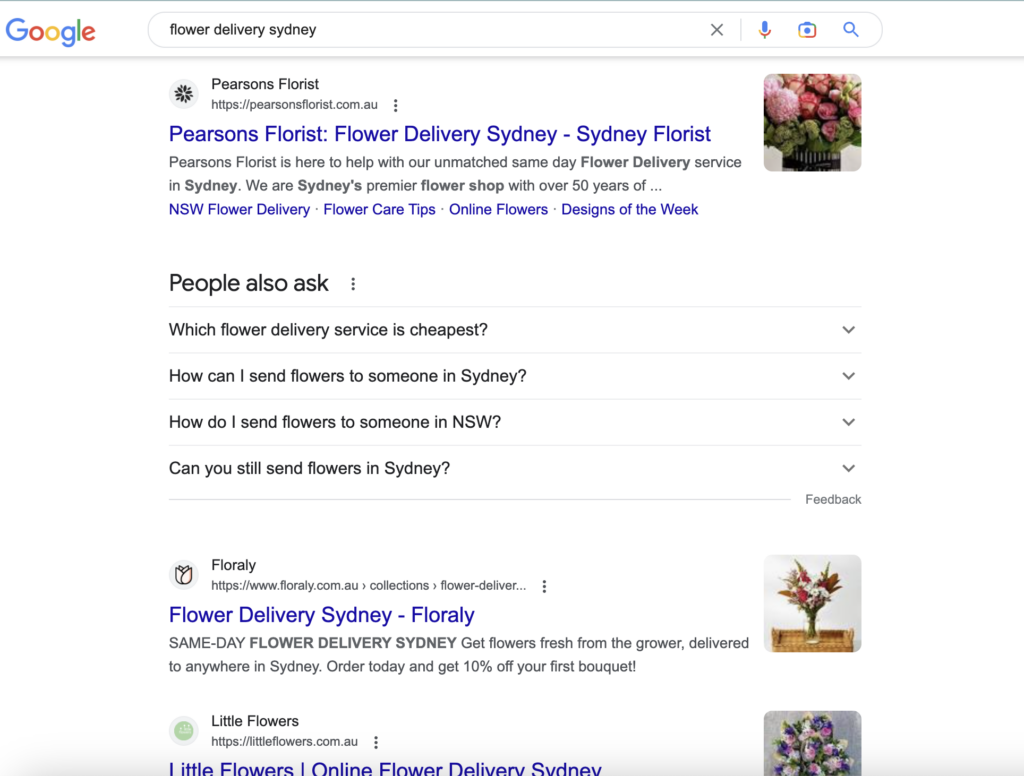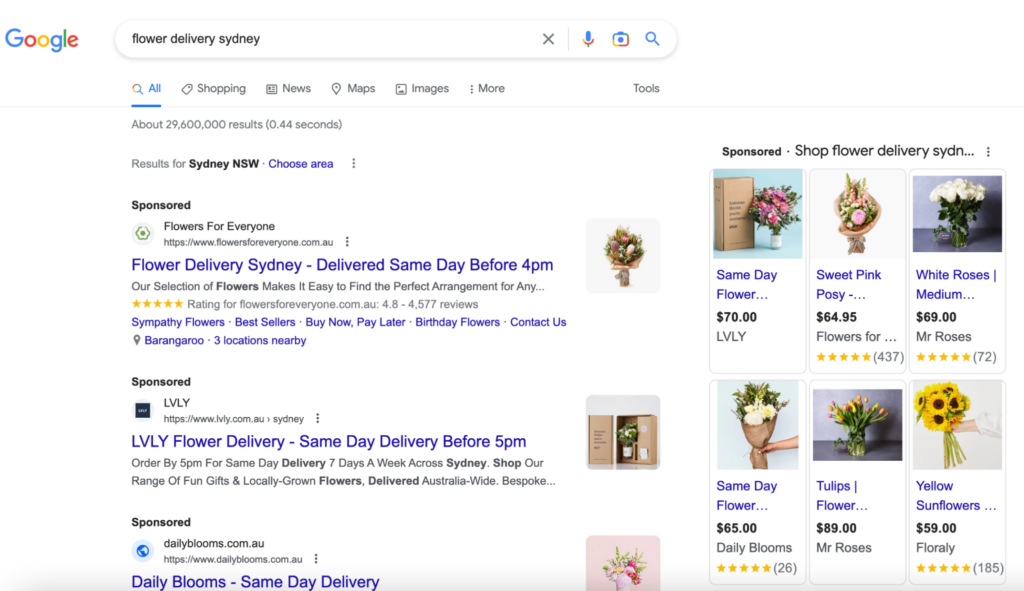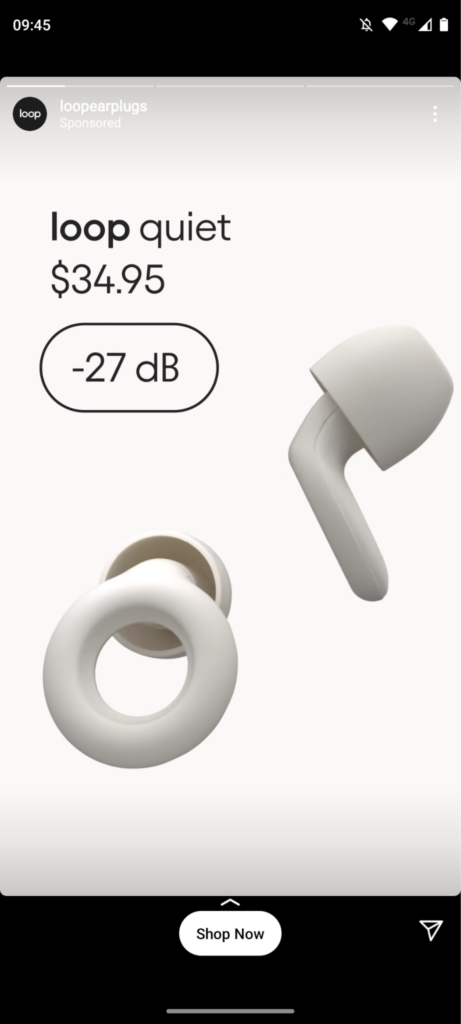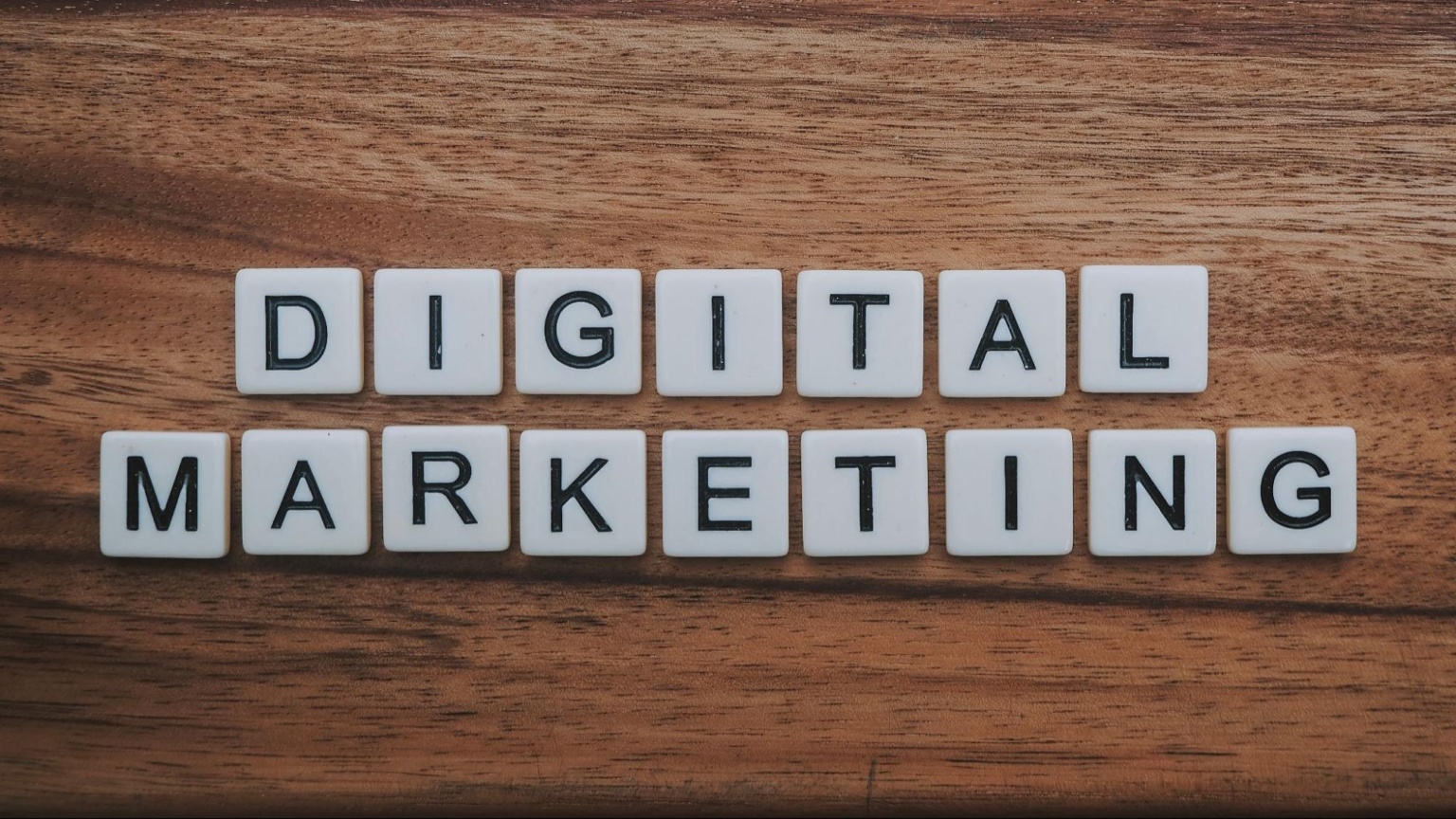Generally, when people refer to digital marketing, they’re referring to online marketing avenues such as content marketing, email marketing, SEO, PPC marketing, etc. This puts digital marketing in juxtaposition with traditional marketing, which includes things like billboard ads, radio, and television (although television is technically digital, it’s still classed as traditional marketing).
So just what is digital marketing? What are the different types of digital marketing? Why is digital marketing important? Let’s take a closer look at all of these questions and more.
At Reputation by Design, we help proactively grow your reputation through our range of marketing services, with specialties in award submission writing and organic social media management. Contact us today to find out how we can help you.
What is digital marketing?
Digital marketing refers to the use of digital channels, platforms, and technologies to promote products, services, or brands to a targeted audience. It involves using various online channels such as search engines, social media, email, mobile apps, websites, and other digital mediums to reach potential customers, including texts and push notifications.
In essence, any marketing campaign that uses digital communication can be classified as digital marketing (except television… sorry television). And with 5.16 Billion internet users as of 2023, you know that digital marketing is something to be valued!
The types of digital marketing

Search engine optimisation (SEO) is the practice of optimising your website and its content to increase its visibility and ranking in search engine results pages (SERPs). The primary goal of SEO is to generate organic traffic by making it easier for search engines to find, crawl, and index your website, which can result in higher visibility and a greater chance of being clicked on by users. SEO is composed of three primary categories.
On-page optimisation, which involves optimising content and keyword usage to match search intent;
Off-page optimisation, which involves earning backlinks from other authoritative websites, and;
Technical SEO, which is focused on optimising the backend of your website for faster load times and improved user experience, which can positively impact your search engine rankings.
By employing a range of SEO techniques, businesses can drive targeted traffic to their website, increase brand awareness, and boost their online presence. SEO is a slow-burner, it takes time to build up authority and traffic, but if done correctly, it can be one of the most cost-effective types of digital marketing.
With just under 50% of businesses choosing to perform some form of SEO, it’s important to jump on the wagon now, or risk getting left behind!
What about Voice search optimisation?
Voice search optimisation (VSO) refers to the practice of optimising a website or other digital content to improve its suitability for queries performed using voice search technology, such as those conducted through virtual assistants like Siri, Alexa, or Google Assistant.
Good VSO involves the use of conversational language, long-tail keywords, and natural language queries, to ensure that it is more easily discoverable and understandable by voice search algorithms. As voice search continues to become more prevalent, VSO is becoming increasingly important for businesses and individuals looking to stay competitive in the digital landscape.
Search engine marketing (SEM)

Search engine marketing (SEM) is a form of digital marketing that involves promoting a business or product by placing paid advertisements at the very top of search engine results pages.
When potential leads search for keywords related to the business or product, SEM allows for targeted advertising to appear at the very top of the search results, increasing visibility and potential traffic to the website. SEM typically involves the use of paid search ads on search engines such as Google Ads and Bing Ads, and can also incorporate search engine optimisation (SEO) strategies for organic traffic. The seamless integration of paid ads into search results pages also makes SEM an effective form of native advertising.
One big benefit of SEM over SEO is that you can essentially just turn it on and off. Plus, you can always rank higher with SEM than with SEO due to the sponsored section at the very top of search results!
Content marketing
Content marketing is a strategic marketing approach that involves creating and sharing valuable, relevant, and consistent content to attract and retain a clearly defined audience, with the ultimate goal of driving profitable customer action. The content can take many forms, including blog posts, ebooks, whitepapers, videos, podcasts, infographics, and social media updates, among others.
By providing useful and educational content that aligns with the interests of the audience, businesses can build brand awareness, establish themselves as thought leaders in their industry, generate traffic to their website, and ultimately drive leads and sales. Successful content marketing requires a deep understanding of the target audience and a commitment to delivering high-quality, relevant content consistently over time. If you want content that converts, then our copywriters can help you get there!
Social media marketing
Social media marketing is a digital marketing strategy that involves promoting a brand and its content on various social media platforms, such as Facebook, Twitter, LinkedIn, Instagram, Snapchat, and Pinterest. The main goals of social media marketing are to increase brand awareness, drive traffic, and generate leads for a business. Marketers may also employ viral marketing strategies by partnering with popular content creators or participating in trends to create share-worthy content that can organically spread across social media channels.
Email marketing
Email marketing refers to the practice of using email as a means of communicating with a target audience for the purpose of promoting content, discounts, events, or directing people towards a business’s website. This type of marketing involves sending various types of emails such as:
- blog subscription/newsletters
- follow-up emails to website visitors who downloaded something
- customer welcome emails
- holiday promotions to loyalty program members
- tips for customer nurturing
Email marketing is a cost-effective way for businesses to engage with their customers and can be used to build relationships, generate leads, and drive sales. Our team of talented copywriters can help you draft up amazing email marketing campaigns that really convert!
Influencer marketing
Influencer marketing refers to a marketing strategy that leverages the influence and reach of social media influencers, who have a significant following and expertise in specific niches. This marketing approach aims to engage and persuade the influencer’s audience to try, purchase, or endorse a product or service. By partnering with influencers, brands can tap into the trust and loyalty that influencers have built with their followers, and benefit from the increased visibility, credibility, and conversions that come with it.
Affiliate marketing
Affiliate marketing refers to a marketing strategy that involves promoting someone else’s products or services on your website and earning a commission for each sale or lead generated through your referral. This type of advertising is performance-based and typically involves posting affiliate links on social media or hosting video ads through programs like the YouTube Partner Program. It is a form of influencer marketing that has become increasingly popular in recent years and can be an effective way to expand the reach of a digital campaign by partnering with the right content creators.
Native advertising

Native advertising refers to a type of advertising that blends seamlessly with the non-paid content on a platform, and is primarily content-led. It is typically presented as an article, video, or other format that resembles the editorial or user-generated content on the platform. This type of advertising is often used on social media platforms like Facebook and Instagram, as well as on websites, and is designed to engage users without disrupting their browsing experience.
Augmented reality (AR) marketing
Augmented reality (AR) marketing is a type of marketing that uses technology to create a more engaging and interactive experience for consumers. AR involves overlaying digital information or graphics onto the real world using a device, such as a smartphone or tablet.
For example, a brand might create an AR app that allows customers to point their phone at a product and see it in 3D or see additional information about the product overlaid on the real world.
AR marketing can be used in a variety of ways, such as to:
- Showcase products in a more immersive way
- Provide interactive product demonstrations
- Allow customers to “try on” products virtually
- Create interactive advertisements that capture attention
- Provide additional information about products or services in a visually engaging way
Digital PR
Digital PR refers to the process of earning positive media coverage and managing the reputation of a brand or organisation through digital channels, such as digital publications, blogs, and content-based websites. It involves using various online communication strategies, including social media outreach to journalists, engaging with online reviews of your company, and responding to comments on your personal website or blog, to build relationships with your audience and establish a positive image for your brand.
Inbound marketing
Inbound marketing is a customer-centric marketing approach that focuses on attracting and engaging potential customers by providing them with valuable, relevant, and personalised content throughout their buyer’s journey.
This methodology aims to create a positive customer experience by using various digital marketing tactics such as blogging, video marketing, social media, and email marketing, among others.
Unlike traditional marketing, which relies on interruptive tactics like pop-up ads, commercial advertising, and email spam, inbound marketing seeks to establish a relationship of trust and mutual benefit between the customer and the brand, leading to long-term customer loyalty and advocacy.
Sponsored Content
Sponsored content refers to a marketing strategy where a brand or company pays a third-party entity to create and promote content that highlights its products or services.
This content could take various forms, including blog posts, articles, social media posts, videos, and other types of digital media. The primary goal of sponsored content is to increase brand awareness, generate leads, and drive sales by leveraging the audiences of other companies or individuals.
One common form of sponsored content is influencer marketing, where a brand partners with an influencer in its industry to promote its offerings to their followers.
Choose Reputation by Design for all your digital marketing needs
Looking to boost your business’s reputation and reach? Look no further than Reputation by Design.
We are an award-winning team of expert copywriters, talented designers, and social media specialists can help you craft compelling messaging, design eye-catching visuals, submit award applications, and optimise your social media presence.
Contact us today to learn more about how we can help your business stand out from the crowd.




